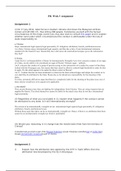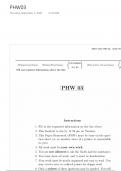College aantekeningen
PIL W3
- Instelling
- Maastricht University (UM)
Assignment for week 3 with detailed tutorial notes after assignment questions (on the end of the document) Message me if you need a sample (or cannot see the tutorial part in sample pages).
[Meer zien]





